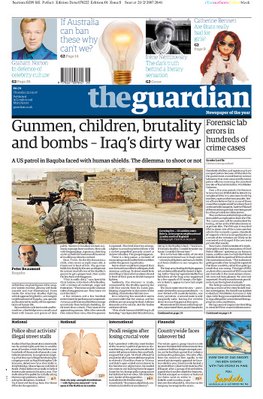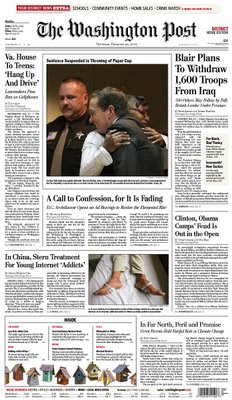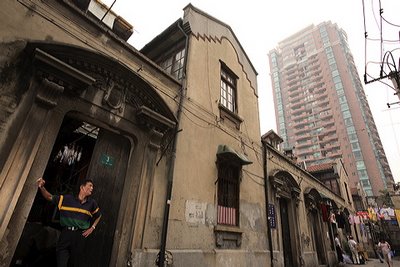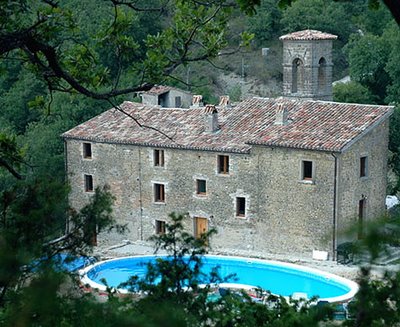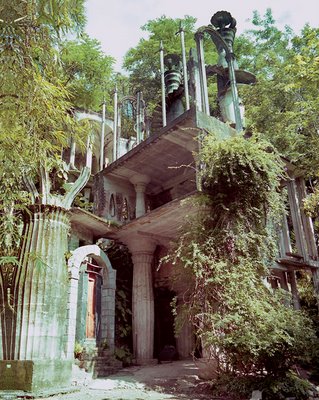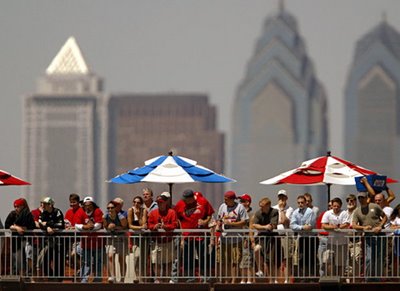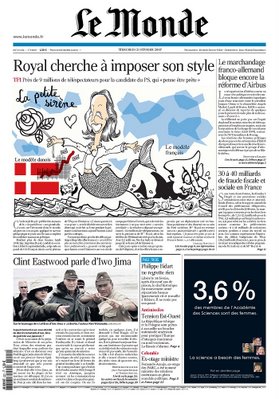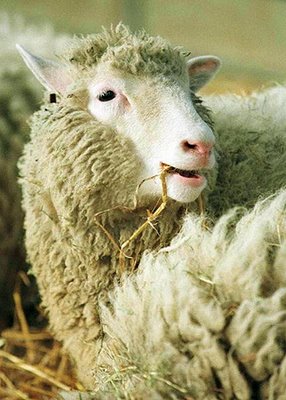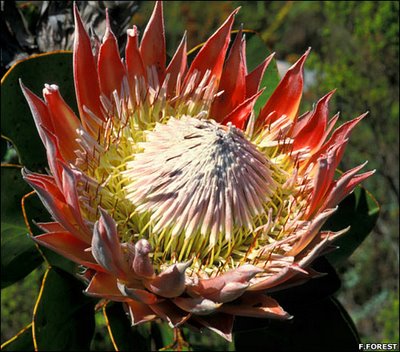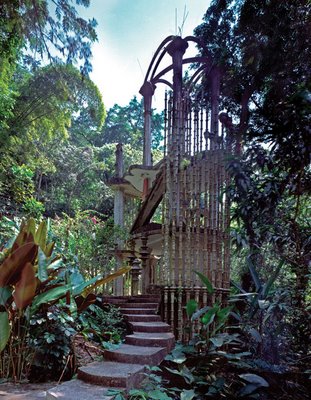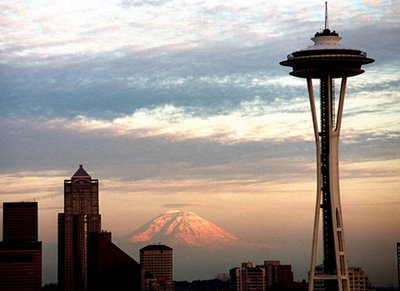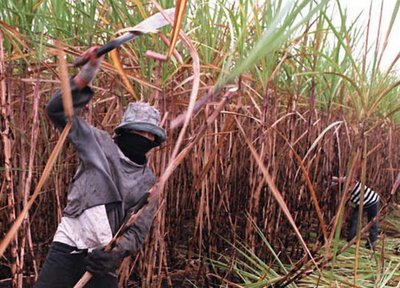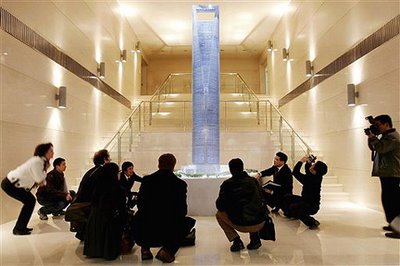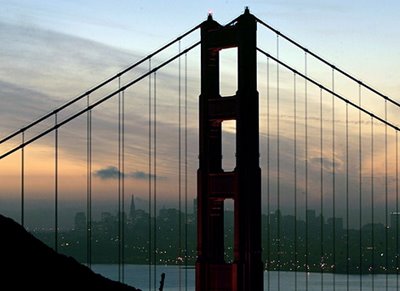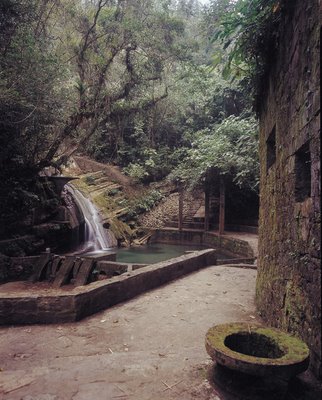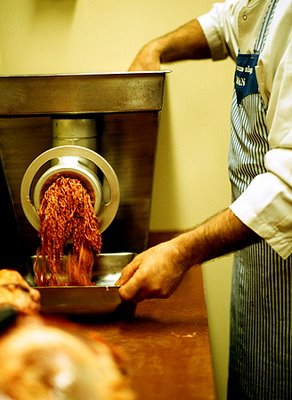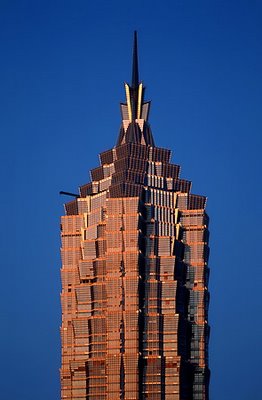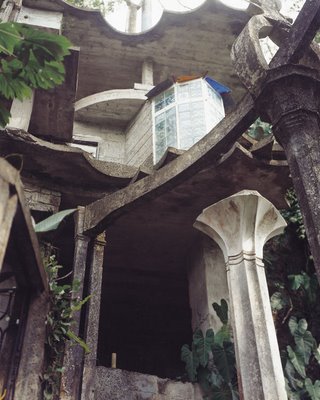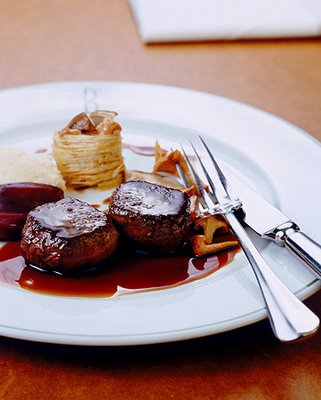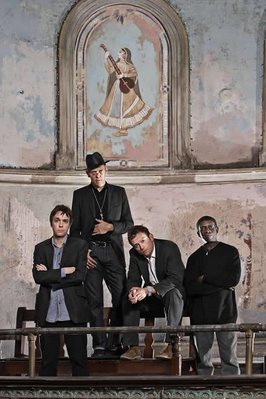Björk guesting on awesome track from 808 State. Bjork, still mastering the english language, started in Icelandic punk scene singing with band Kukl (recorded on Crass' label).
Wednesday, February 28, 2007
Ooops video by 808 State feat. Björk of Sugarcubes
Björk guesting on awesome track from 808 State. Bjork, still mastering the english language, started in Icelandic punk scene singing with band Kukl (recorded on Crass' label).
Björk guesting on awesome track from 808 State. Bjork, still mastering the english language, started in Icelandic punk scene singing with band Kukl (recorded on Crass' label).
Monday, February 26, 2007
Saturday, February 24, 2007
Thursday, February 22, 2007
Good luck, Blues and Royals
Prince Harry will serve in Iraq
Prince Harry's regiment will be deployed to Iraq, the Ministry of Defence (MoD) and Clarence House have confirmed in a joint statement.
His Blues and Royals regiment will serve in Iraq for six months as part of the latest deployments.
The prince will be the first senior royal to serve on the front line since Prince Andrew in the Falklands in 1982.
While in Iraq, the prince will carry out "a normal troop commander's role", the statement said.
This will involve "leading a troop of 12 men in four Scimitar armoured reconnaissance vehicles, each with a crew of three" from the regiment's "A squadron", the statement added.
"The decision to deploy him has been a military one, made by Chief of General Staff, Gen Sir Richard Dannatt, in conjunction with Cornet Wales' commanding officer," it said.
"The Royal household has been consulted throughout."
Further details of exactly where Harry would serve, or his specific role, would not be released because such a move would be "potentially dangerous", the statement added.
A Blues and Royals source said Harry, who has long expressed his determination to see front-line action, was "over the moon" at the deployment.
Last year, the prince said: "There's no way I'm going to put myself through Sandhurst and then sit on my arse back home while my boys are out fighting for their country."
Sandhurst graduation
In a written statement to MPs, Defence Secretary Des Browne said two squadrons from Harry's Household Cavalry Regiment would be deployed with the rotation of troops to take place in May and June.
The lead formation of British troops, currently 19 Light Brigade, would be replaced by 1 Mechanised Brigade, supported by Prince's Harry's regiment, the statement added.
Prince Harry graduated from Sandhurst in April last year and qualified as an armoured reconnaissance troop leader in October.
His rank of Cornet is used by a small number of cavalry units including the Blues and Royals and is the equivalent of the more usual rank of 2nd Lieutenant.
Known to colleagues as Troop Commander Wales, he is able to lead reconnaissance units known as the Army's "eyes and ears".
Confirmation of the deployment comes after Prime Minister Tony Blair told MPs that 1,600 British troops would return from Iraq within the next few months.
He said the 7,100 serving troops in the south of Iraq around Basra would be cut to 5,500 soon, with hopes that 500 more will leave by late summer.
Prince Andrew, Harry's uncle, was a helicopter pilot in the Falklands conflict.
Prince Harry's regiment will be deployed to Iraq, the Ministry of Defence (MoD) and Clarence House have confirmed in a joint statement.
His Blues and Royals regiment will serve in Iraq for six months as part of the latest deployments.
The prince will be the first senior royal to serve on the front line since Prince Andrew in the Falklands in 1982.
While in Iraq, the prince will carry out "a normal troop commander's role", the statement said.
This will involve "leading a troop of 12 men in four Scimitar armoured reconnaissance vehicles, each with a crew of three" from the regiment's "A squadron", the statement added.
"The decision to deploy him has been a military one, made by Chief of General Staff, Gen Sir Richard Dannatt, in conjunction with Cornet Wales' commanding officer," it said.
"The Royal household has been consulted throughout."
Further details of exactly where Harry would serve, or his specific role, would not be released because such a move would be "potentially dangerous", the statement added.
A Blues and Royals source said Harry, who has long expressed his determination to see front-line action, was "over the moon" at the deployment.
Last year, the prince said: "There's no way I'm going to put myself through Sandhurst and then sit on my arse back home while my boys are out fighting for their country."
Sandhurst graduation
In a written statement to MPs, Defence Secretary Des Browne said two squadrons from Harry's Household Cavalry Regiment would be deployed with the rotation of troops to take place in May and June.
The lead formation of British troops, currently 19 Light Brigade, would be replaced by 1 Mechanised Brigade, supported by Prince's Harry's regiment, the statement added.
Prince Harry graduated from Sandhurst in April last year and qualified as an armoured reconnaissance troop leader in October.
His rank of Cornet is used by a small number of cavalry units including the Blues and Royals and is the equivalent of the more usual rank of 2nd Lieutenant.
Known to colleagues as Troop Commander Wales, he is able to lead reconnaissance units known as the Army's "eyes and ears".
Confirmation of the deployment comes after Prime Minister Tony Blair told MPs that 1,600 British troops would return from Iraq within the next few months.
He said the 7,100 serving troops in the south of Iraq around Basra would be cut to 5,500 soon, with hopes that 500 more will leave by late summer.
Prince Andrew, Harry's uncle, was a helicopter pilot in the Falklands conflict.
World's Most Polluted Cities 2
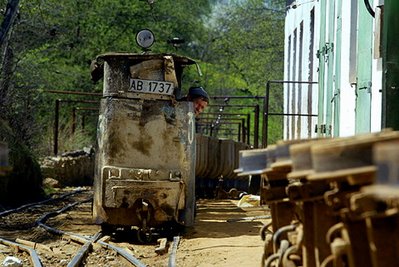 BAIA MARE, ROMANIA
BAIA MARE, ROMANIAAn industrial accident back in 2000 involving Romanian mining company Aurul released an estimated 50 to 100 tons of cyanide and heavy metals such as copper into the river system near Baia Mare in the northwest part of the country. Contamination of one Tisza River tributary in particular caused a massive fish and wildlife kill and tainted drinking water, affecting 2.5 million people.
Biofuel 10
One of the big hurdles to the widespread use of biofuels is getting the fuel to consumers. That’s why boosters are lobbying Washington to require gas stations to add pumps that dispense ethanol blends like E85 (85% ethanol). Currently, there are only a few such pumps in the nation, like this one in Chicago.
Wednesday, February 21, 2007
Islamic morality / Islamic stupidity!
Malaysian state to spy on lovers
By Jonathan Kent BBC correspondent in Kuala Lumpur
The Malaysian state of Terengganu is to recruit a network of spies to keep an eye on local Muslims.
The spies will tip off Islamic morality officers if they spot couples engaged in illicit kissing, cuddling or other untoward activities.
The public has been assured that the spies will only be allowed to snoop, and not peep.
The state hopes to recruit workers in public places to watch for unmarried couples behaving suspiciously.
The head of Terengganu's Islam and Welfare Committee, Rosol Wahid, said the spies would tip off religious morality patrols if they saw Muslims on dates in secluded areas and believed they were intending to have sex.
He later assured people that his agents would not be peeping toms hiding behind trees and that they would not be issued with binoculars.
Mr Rosol seems to have been spurred by his belief that most of the rapes reported in the state are in fact instances of consensual sex.
He says parents complain to the police when they later discover that their daughters are pregnant.
By Jonathan Kent BBC correspondent in Kuala Lumpur
The Malaysian state of Terengganu is to recruit a network of spies to keep an eye on local Muslims.
The spies will tip off Islamic morality officers if they spot couples engaged in illicit kissing, cuddling or other untoward activities.
The public has been assured that the spies will only be allowed to snoop, and not peep.
The state hopes to recruit workers in public places to watch for unmarried couples behaving suspiciously.
The head of Terengganu's Islam and Welfare Committee, Rosol Wahid, said the spies would tip off religious morality patrols if they saw Muslims on dates in secluded areas and believed they were intending to have sex.
He later assured people that his agents would not be peeping toms hiding behind trees and that they would not be issued with binoculars.
Mr Rosol seems to have been spurred by his belief that most of the rapes reported in the state are in fact instances of consensual sex.
He says parents complain to the police when they later discover that their daughters are pregnant.
Islamic morality / Islamic stupidity!
Malaysian state to spy on lovers
By Jonathan Kent BBC correspondent in Kuala Lumpur
The Malaysian state of Terengganu is to recruit a network of spies to keep an eye on local Muslims.
The spies will tip off Islamic morality officers if they spot couples engaged in illicit kissing, cuddling or other untoward activities.
The public has been assured that the spies will only be allowed to snoop, and not peep.
The state hopes to recruit workers in public places to watch for unmarried couples behaving suspiciously.
The head of Terengganu's Islam and Welfare Committee, Rosol Wahid, said the spies would tip off religious morality patrols if they saw Muslims on dates in secluded areas and believed they were intending to have sex.
He later assured people that his agents would not be peeping toms hiding behind trees and that they would not be issued with binoculars.
Mr Rosol seems to have been spurred by his belief that most of the rapes reported in the state are in fact instances of consensual sex.
He says parents complain to the police when they later discover that their daughters are pregnant.
By Jonathan Kent BBC correspondent in Kuala Lumpur
The Malaysian state of Terengganu is to recruit a network of spies to keep an eye on local Muslims.
The spies will tip off Islamic morality officers if they spot couples engaged in illicit kissing, cuddling or other untoward activities.
The public has been assured that the spies will only be allowed to snoop, and not peep.
The state hopes to recruit workers in public places to watch for unmarried couples behaving suspiciously.
The head of Terengganu's Islam and Welfare Committee, Rosol Wahid, said the spies would tip off religious morality patrols if they saw Muslims on dates in secluded areas and believed they were intending to have sex.
He later assured people that his agents would not be peeping toms hiding behind trees and that they would not be issued with binoculars.
Mr Rosol seems to have been spurred by his belief that most of the rapes reported in the state are in fact instances of consensual sex.
He says parents complain to the police when they later discover that their daughters are pregnant.
Islamic morality / Islamic stupidity!
Malaysian state to spy on lovers
By Jonathan Kent BBC correspondent in Kuala Lumpur
The Malaysian state of Terengganu is to recruit a network of spies to keep an eye on local Muslims.
The spies will tip off Islamic morality officers if they spot couples engaged in illicit kissing, cuddling or other untoward activities.
The public has been assured that the spies will only be allowed to snoop, and not peep.
The state hopes to recruit workers in public places to watch for unmarried couples behaving suspiciously.
The head of Terengganu's Islam and Welfare Committee, Rosol Wahid, said the spies would tip off religious morality patrols if they saw Muslims on dates in secluded areas and believed they were intending to have sex.
He later assured people that his agents would not be peeping toms hiding behind trees and that they would not be issued with binoculars.
Mr Rosol seems to have been spurred by his belief that most of the rapes reported in the state are in fact instances of consensual sex.
He says parents complain to the police when they later discover that their daughters are pregnant.
By Jonathan Kent BBC correspondent in Kuala Lumpur
The Malaysian state of Terengganu is to recruit a network of spies to keep an eye on local Muslims.
The spies will tip off Islamic morality officers if they spot couples engaged in illicit kissing, cuddling or other untoward activities.
The public has been assured that the spies will only be allowed to snoop, and not peep.
The state hopes to recruit workers in public places to watch for unmarried couples behaving suspiciously.
The head of Terengganu's Islam and Welfare Committee, Rosol Wahid, said the spies would tip off religious morality patrols if they saw Muslims on dates in secluded areas and believed they were intending to have sex.
He later assured people that his agents would not be peeping toms hiding behind trees and that they would not be issued with binoculars.
Mr Rosol seems to have been spurred by his belief that most of the rapes reported in the state are in fact instances of consensual sex.
He says parents complain to the police when they later discover that their daughters are pregnant.
Shanghai, Then and Now 5
Wu Yun Rei has occupied his one-room apartment in a shikumen row house since the early 1950s. He says each year the bulldozers get closer and closer, but he still refuses to move to a new neighborhood. Nonetheless, even Wu realizes that he won't be able to resist progress and the government forever.
European Villas 3
Price: $5,200 to $8,850 a week
This former 12th-century Benedictine monastery, located in Italy's up and coming Le Marche (pronounced “Lay Markay”) region, was completely converted last year into a capacious, six-bedroom villa. What was once a chapel has been turned into a high-ceilinged sitting room, while the former monks' quarters now house a series of sumptuous-yet-rustic bedrooms and reading rooms. The villa, which sleeps up to 13 people, also boasts one amenity the monks never enjoyed: a heated swimming pool.
World's Most Polluted Cities 1
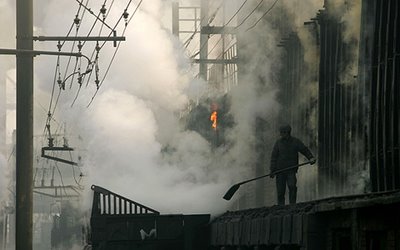 World's Most Polluted Cities
World's Most Polluted CitiesSome of these cities were the scene of ecological disasters, others just suffered from years of neglect — but all are in a state of crisis
By Brian Bremner
This is not a list most cities would care to be on — and maybe that's the point. Since 2003, the New York-based Blacksmith Institute has accepted online nominations for the most polluted locales on the planet and published a list of the top 10 offenders. To get there, the environmental group's technical advisory board, which includes experts from Johns Hopkins, Harvard, and IIT India, reviews a list of 35 finalists and ranks them on a scoring system that takes into account the severity of pollution and toxins involved, verifiable evidence of a public health impact, and the size of the population affected. Blacksmith is now accepting nominations for its 2007 roster at www.blacksmithinstitute.org, where you can also read about some clean-up success stories. Here's a sampling of some of the locales that made the final 35 on last year's list.
Monday, February 19, 2007
Friday, February 16, 2007
LCD Soundsystem - North American Scum (Promo Video)
Promo video for "North American Scum" by LCD Soundsystem, from their latest album "Sound of Silver". Video directed by Ben Dickinson.
Promo video for "North American Scum" by LCD Soundsystem, from their latest album "Sound of Silver". Video directed by Ben Dickinson.
Biofuel 9
The U.S. now has 112 factories, like this one near Lena, Ill., that ferment and distill the sugar from corn into ethanol. That’s the same form of alcohol that we drink. If all the ethanol plants now under construction or planned are actually built, they will consume half of the U.S. corn harvest by the end of next year
Thursday, February 15, 2007
European Villas 2
Price: $3,500 to $5,700 a week
The British agency Abercrombie & Kent specializes in fully appointed luxury villas, so you don't have to sweat the details; just show up and enjoy. This property in the Luberon area of Provence is a restored 17th-century village house seemingly carved from the stone cliffs. But inside, the villa is far from rustic. A restored stone staircase leads directly to a 12 x 24 foot swimming pool. The ground floor features an open fireplace, DVD player, satellite TV, and stereo. The house sleeps four to six people.
Shanghai, Then and Now 4
The 21-story Park Hotel (the dark brown building at center) was for many decades the tallest building in Asia, but today it's dwarfed by the towers around it. It formerly overlooked the Shanghai horse racetrack, but that has been converted into a public park and administrative buildings.
Shanghai, Then and Now 4
The 21-story Park Hotel (the dark brown building at center) was for many decades the tallest building in Asia, but today it's dwarfed by the towers around it. It formerly overlooked the Shanghai horse racetrack, but that has been converted into a public park and administrative buildings.
The army and Karamojong warriors
Uganda's cattle clashes kill 50
About 50 people have been killed in clashes between the army and Karamojong warriors in north-eastern Uganda.
Four soldiers were killed in an ambush on Monday, leading to heavy fighting between the military and the herdsmen, said army spokesman Henry Obbo.
He said the clashes started when Karamojong warriors armed with machine-guns tried to recover stolen cattle recovered by the army.
Helicopter gunships have been deployed against the Karamojong warriors.
Uganda's government launched a disarmament programme in the region last year, targeting some 30,000 weapons held by the herdsmen.
Cattle raids
"We pursued these people, killed 45 in one battle, bringing the total of those killed to 52," Mr Obbo told Reuters news agency.
The United Nations has accused the military of using indiscriminate and excessive force and of killing women and children.
The drought prone Karamoja region has suffered banditry and inter-clan warfare for decades and is known as Uganda's forgotten conflict zone.
Heavily armed cattle rustlers frequently raid villages looting livestock and often killing the inhabitants.
The Karamojong herdsmen are often in conflict with the Pokot and Turkana neighbours in Kenya who also practice cattle rustling.
About 50 people have been killed in clashes between the army and Karamojong warriors in north-eastern Uganda.
Four soldiers were killed in an ambush on Monday, leading to heavy fighting between the military and the herdsmen, said army spokesman Henry Obbo.
He said the clashes started when Karamojong warriors armed with machine-guns tried to recover stolen cattle recovered by the army.
Helicopter gunships have been deployed against the Karamojong warriors.
Uganda's government launched a disarmament programme in the region last year, targeting some 30,000 weapons held by the herdsmen.
Cattle raids
"We pursued these people, killed 45 in one battle, bringing the total of those killed to 52," Mr Obbo told Reuters news agency.
The United Nations has accused the military of using indiscriminate and excessive force and of killing women and children.
The drought prone Karamoja region has suffered banditry and inter-clan warfare for decades and is known as Uganda's forgotten conflict zone.
Heavily armed cattle rustlers frequently raid villages looting livestock and often killing the inhabitants.
The Karamojong herdsmen are often in conflict with the Pokot and Turkana neighbours in Kenya who also practice cattle rustling.
Wednesday, February 14, 2007
Bocas 1ª parte
Matem as saudades! This cartoons were very popular in Portugal when i was a little kid.
Matem as saudades! This cartoons were very popular in Portugal when i was a little kid.
Biofuel 8
Brazil has dramatically slashed its oil needs by turning sugar cane into ethanol, which then fuels its cars and trucks. Here, a worker cuts cane on a plantation near the town of Campos, 300km north of Rio de Janeiro. Planting more sugar cane could enable the country to export more ethanol to meet other nations’ demand for biofuels.
European Villas 1
Rental options run the gamut, from luxury amenities to period decor, and central location to intimate seclusion. And prices are down thanks to online booking
By Daniel Carlin
Renting a villa in Europe means different things to different people. For some, it's about total seclusion; for others, round-the-clock pampering. Still others want total immersion in the local culture. Before contacting a rental agency, take time to think about the location you want and the features that matter most to you. A good agency can take it from there.Of course, there's also your budget to consider. But the good news: The ease of online listing and booking has spurred more owners to put their properties on the rental market. That has spurred competition, and average prices in some areas are actually lower than a few years ago. Join us for a virtual tour of some villas to suit a range of tastes and budgets. They're just a sample of the many properties that could be the backdrop for your European dream vacation.
Shanghai, Then and Now 3
The architects of the 1,615-foot-high Shanghai World Financial Center came up with a novel plan to reduce wind resistance a gigantic circle cut through the upper floors. But that feature was nixed because it too closely resembled the flag of Japan, a country still resented for its brutal occupation of the city during World War II. The circle was replaced by a trapezoidal cut-out. The 101-floor building, designed by New York's Kohn Pederson Fox Assoc., is two-thirds built and will be completed next year.
And the battle goes on
French police in 'terror' swoop
The French interior ministry has said it has arrested 11 terror suspects, detaining men in both Paris and south-western France.
Nine are believed to be members of al-Qaeda who helped recruit fighters to take part in Iraq's insurgency.
Two of the men were detained as they arrived at Orly airport, in Paris, late on Tuesday, and the other nine in the Toulouse region on Wednesday.
The nine were reported to have been under surveillance for many months.
"These individuals from the south-west of France are allegedly involved in the organisation of a network that provided jihadists to Iraq," the interior ministry said in a statement.
The two men arrested in Paris were detained after being expelled from Syria where they were trying to cross into Iraq, the AFP news agency said.
The French interior ministry has said it has arrested 11 terror suspects, detaining men in both Paris and south-western France.
Nine are believed to be members of al-Qaeda who helped recruit fighters to take part in Iraq's insurgency.
Two of the men were detained as they arrived at Orly airport, in Paris, late on Tuesday, and the other nine in the Toulouse region on Wednesday.
The nine were reported to have been under surveillance for many months.
"These individuals from the south-west of France are allegedly involved in the organisation of a network that provided jihadists to Iraq," the interior ministry said in a statement.
The two men arrested in Paris were detained after being expelled from Syria where they were trying to cross into Iraq, the AFP news agency said.
Tuesday, February 13, 2007
Cloned foods 7
Cloned hamburger is not simply part of science fiction anymore—at least at Cyagra, a biotech company based in Elizabethtown, Pa. Every Friday, employees at this firm chow down on hamburgers, tacos, or meatball spaghetti made from meat that was left over from clones. The company raised and then slaughtered 11 clones for samples that were used as part of a cloned meat study. The results of the study were sent to the FDA as part of its investigation into cloned foods. Ground beef derived from clones is also four and half years off.
Biofuel 7
Already, higher crop prices have enabled governments to slash their usual subsidy payments. The U.S., for instance, will give corn farms more than $6 billion less in 2007 than in 2006. But farmers will still come out ahead. Economists predict a permanent jump in agricultural commodities. That would bring farmers — and the whole farm economy, including equipment makers like John Deere — unprecedented prosperity, and revitalize rural communities around the world.
Shanghai, Then and Now 2
Rising 1,385 feet, the 88-story Jin Mao Tower was designed by Skidmore Owings & Merrill of Chicago. The building, completed in 1999, is considered the most Chinese of Shanghai's skyscrapers. It's also the highest, at least until the 101-story World Financial Center next door is finished. Jin Mao is said to be influenced by the lines of traditional pagodas, and its complex curtain-walled exterior makes it the most technically ambitious building in Shanghai.
Monday, February 12, 2007
Future hope
Type 2 diabetes genes mapped out
Scientists say they have mapped the most important genes that put people at risk of type 2 diabetes, offering hope that a test could be delivered.
The findings could explain up to 70% of the genetics of the disorder which affects over 1.9 million UK people.
Family history is a major risk factor for the condition, along with obesity.
The Imperial College London team, working with Canadian colleagues, found four points on the gene map linked to a person's diabetes risk, Nature reports.
Gene screen
One of the genetic mutations they identified, after scanning nearly 400,000 mutations, could potentially explain the cause behind type 2 diabetes.
The mutation was in a particular zinc transporter, known as SLC30A8, which is involved in regulating insulin secretion.
It may be possible to treat some diabetes by mending this transporter, the researchers say.
They compared the genetic make-up of 700 people with type 2 diabetes and a family history of the condition, with 700 diabetes-free people.
Once they found the four culprit regions they confirmed their findings by checking the genetic make-up of 5,000 more people with type 2 diabetes and a family history of the condition.
Future hope
Researcher Professor Philippe Froguel, from Imperial College London, said: "Our new findings mean that we can create a good genetic test to predict people's risk of developing this type of diabetes.
"If we can tell someone that their genetics mean they are predisposed towards type 2 diabetes, they will be much more motivated to change things such as their diet to reduce their chances of developing the disorder.
"We can also use what we know about the specific genetic mutations associated with type 2 diabetes to develop better treatments."
The researchers now plan to study the genes they identified more closely.
Dr Iain Frame of Diabetes UK said: "We have known for some time that family history plays a part in whether or not someone might develop type 2 diabetes.
"Whilst it is still early days, the results of this research look promising as they could potentially help the early identification of people with a genetic risk.
"In the longer term they could perhaps lead to better treatments for people with the condition."
Scientists say they have mapped the most important genes that put people at risk of type 2 diabetes, offering hope that a test could be delivered.
The findings could explain up to 70% of the genetics of the disorder which affects over 1.9 million UK people.
Family history is a major risk factor for the condition, along with obesity.
The Imperial College London team, working with Canadian colleagues, found four points on the gene map linked to a person's diabetes risk, Nature reports.
Gene screen
One of the genetic mutations they identified, after scanning nearly 400,000 mutations, could potentially explain the cause behind type 2 diabetes.
The mutation was in a particular zinc transporter, known as SLC30A8, which is involved in regulating insulin secretion.
It may be possible to treat some diabetes by mending this transporter, the researchers say.
They compared the genetic make-up of 700 people with type 2 diabetes and a family history of the condition, with 700 diabetes-free people.
Once they found the four culprit regions they confirmed their findings by checking the genetic make-up of 5,000 more people with type 2 diabetes and a family history of the condition.
Future hope
Researcher Professor Philippe Froguel, from Imperial College London, said: "Our new findings mean that we can create a good genetic test to predict people's risk of developing this type of diabetes.
"If we can tell someone that their genetics mean they are predisposed towards type 2 diabetes, they will be much more motivated to change things such as their diet to reduce their chances of developing the disorder.
"We can also use what we know about the specific genetic mutations associated with type 2 diabetes to develop better treatments."
The researchers now plan to study the genes they identified more closely.
Dr Iain Frame of Diabetes UK said: "We have known for some time that family history plays a part in whether or not someone might develop type 2 diabetes.
"Whilst it is still early days, the results of this research look promising as they could potentially help the early identification of people with a genetic risk.
"In the longer term they could perhaps lead to better treatments for people with the condition."
Cloned food 6
Livestock farmers hope to use cloning for the same kind of improvements in beef that experts foresee for milk. Farmers plan to identify animals from their herds that produce the choicest meats—prime grades with top consistency and marbling—so they can clone them. The hope is that the offspring of these clones will produce the same exceptional quality steaks, chops, and fillets. Says Ronald Bailey, a science editor for Reason magazine, in a blog entry: "The usual neoluddite naysayers oppose cloning animals. As for me, I can hardly wait for a nicely marbled steak from a clone of prize-winning steer." Such meats likely won't be introduced for four and a half more years.
Biofuel 6
Here in the Philippines, biodiesel is beginning to cut air pollution, greenhouse gas emissions, and imports of oil. Some experts predict a shift in the global balance of power, as countries “grow” enough of their own fuel to significantly reduce the need to buy petroleum from OPEC and other oil-rich nations.
Saturday, February 10, 2007
Music video for Eleni Mandell's song "Makeout King" Comes from the album "Miracle of Five" to be released on February 6th.
Shanghai, Then and Now 1
 Shanghai, Then and Now
Shanghai, Then and NowThe contrast between the city's new skyscrapers and its colonial-era enclaves couldn't be greater
By Frederik BalfourIn 1992, Deng Xiaoping declared that Shanghai would be “the head of the dragon” pulling China into the future and poised to unseat Tokyo, Hong Kong, and Singapore as Asia's pre-eminent financial capital a role Shanghai played in the 1920s. Since then, the city has seen an unprecedented building boom, with its housing stock more than doubling in the past 15 years. But the wrecking ball has been wielded with a vengeance, and more than two-thirds of Shanghai's colonial-era neighborhoods have been flattened to make way for office towers and expressways. Only now are preservationists able to save some of Shanghai's remaining architectural heritage. The contrast between the city's futuristic skyscrapers and what is left of its old neighborhoods is stark

